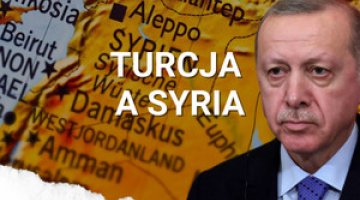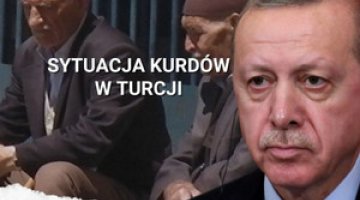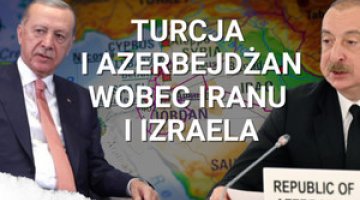A thaw in Turkey’s relations with the EU?
On 6–7 September, EU Commissioner for Neighbourhood and Enlargement Olivér Várhelyi visited Ankara. He held talks, among others, with the Ministers of Foreign Affairs, Trade, Energy and Natural Resources of Turkey. At a joint conference, the head of the Turkish Ministry of Foreign Affairs, Hakan Fidan, announced that he looked forward to improving relations between the EU and Turkey. He also stressed the importance of current political and economic ties with the EU and announced a rapid return to talks on updating the customs union and visa facilitation for Turkish businessmen travelling to the EU. In an interview with Reuters, the Commissioner indicated that with regards to bilateral relations both sides have identified areas where the EU and Turkey could immediately start further cooperation. At the same time, he stipulated that Turkey’s membership of the EU would require it to fulfil its commitments to the principles of democracy and the rule of law. At a plenary session of the European Parliament on 12 September, Commissioner Várhelyi further specified that the parties could make progress in areas such as: upgrading the customs union, visa facilitation, energy, technology, investment, and food security. Nevertheless, he made this cooperation conditional on the initiation of reforms in Turkey and further improvement in bilateral relations.
During the Commissioner’s visit to Ankara, it was declared that Turkey would be included in the ‘Digital Europe’ programme (that supports digitisation in public administration) with a total budget of €7.5 billion. In addition, Ankara received €400 million from the EU Solidarity Fund, which is used, among other things, to support countries participating in accession negotiations that are coping with the side effects of natural disasters (in Turkey’s case the earthquake from February this year), and €781 million in aid for refugees residing in Turkey.
Commentary
- Turkey’s initial bid for EU membership – back then known as the European Economic Community (EEC) – began as early as 1963, with the signing of an association agreement with the EEC. In 1987, Ankara formally applied to join the European Community and was granted EU candidate status in 1999. Accession negotiations began in 2005, with the process unfolding with varying intensity up until 2016 (failed putsch in Turkey). In terms of trade relations, a customs union has been in place between Turkey and the EU since 1995, with both sides starting its renegotiation in 2015.
Likewise, dialogue for visa liberalisation between the EU and Turkey was initiated in 2013. However, in 2018 – as a result of Turkey’s further distancing from EU values and in view of the deteriorating state of the rule of law and democracy in the country – the Council of the European Union noted that Turkey’s EU accession negotiations had stalled and indicated that no further chapters in the process – including work on renegotiating the customs union – could be opened or closed. The stalled negotiations were also compounded by growing disputes between Turkey and Greece, Cyprus or France in the Mediterranean. At the same time, enthusiasm for EU integration was also declining on the Turkish side and was reflected, among other things, in shifting the weight of the Turkey-EU dialogue purely to talks regarding updating the customs union – all amidst growing distrust of the West after the 2016 coup attempt. - The EU Commissioner’s visit to Ankara and Várhelyi’s moderate optimism demonstrate the EU’s readiness to resume dialogue with the Turkish authorities. Underlying the change of attitude appears to be the result of Turkey’s importance in ensuring European security, including halting the flow of migrants from the Middle East (Turkey has taken in 3.7 million Syrian refugees), as well as the lack of a political alternative to President Recep Tayyip Erdoğan’s camp after securing another victory in the parliamentary and presidential elections in May this year. At the NATO summit in Vilnius in July this year, Erdoğan cited the unfreezing of the accession process as one of the conditions for Turkey’s agreement to ratify Swedish membership in the Alliance, which was probably also one of the impulses for the EU to return to dialogue with Ankara. On the EU’s side, confirmation of its goodwill regarding the improvement in relations is the readiness to provide financial support to Turkey through the Solidarity Fund, Ankara’s inclusion in the ‘Digital Europe’ programme and the Commissioner’s promise to resume talks on updating and expanding the existing customs union. At this stage, the EU is also not voicing typical issues like the problem of Cyprus and Greece with Turkey.
- Unfreezing relations and returning to close dialogue with the EU are in Ankara's economic and political interest. The resumption of membership and customs union negotiations would allow Turkey to count on improving its financial credibility in the eyes of foreign investors and potentially lifting trade restrictions that stem from the existing customs union (currently Turkish agriculture and services are largely excluded from the 1995 agreement). Politically, Erdoğan’s tentative agreement to ratify Sweden’s NATO membership, together with improving relations with Greece (a return to dialogue) and the US (e.g. joint naval exercises) are very likely to benefit Turkey’s further rapprochement with the EU. A tangible sign of the improvement in its image vis-à-vis global lenders appears to be the announcement in September of an additional $18 billion loan to Turkey by the World Bank (in addition to the $17 billion already received) for the stabilisation and modernisation of the Turkish economy, support for the private and public sectors and post-earthquake reconstruction.
- While there is a clear desire on the part of both Turkey and the EU to improve relations, their development will continue to be constrained by a number of fundamental differences on issues such as democratic standards, rule of law, and continued mutual distrust. The chances of a rapid and significant improvement in relations are therefore slim, and a return to a genuine Turkish accession process seems unlikely. A test of intentions of both sides regarding the possibility of closer cooperation will be the resumption of EU-Turkish talks on the customs union in the coming weeks, as well as the ratification of Sweden’s NATO membership by the Turkish parliament, which resumes work in October. Ankara’s decisions with regards to Sweden’s accession to NATO will undoubtedly be influenced by its dispute with the US over the sale of F-16 fighter jets to Turkey, which Washington now seems to be making conditional on Turkey’s ratification of Sweden’s NATO membership. On the EU side, an important determinant of the nature and extent of further cooperation will be the tone of the European Commission’s October report where an assessment of Turkey’s (and other candidates’) progress in the accession process will be made along with an opinion presented on how far Ankara has come in meeting the criteria for EU membership.




